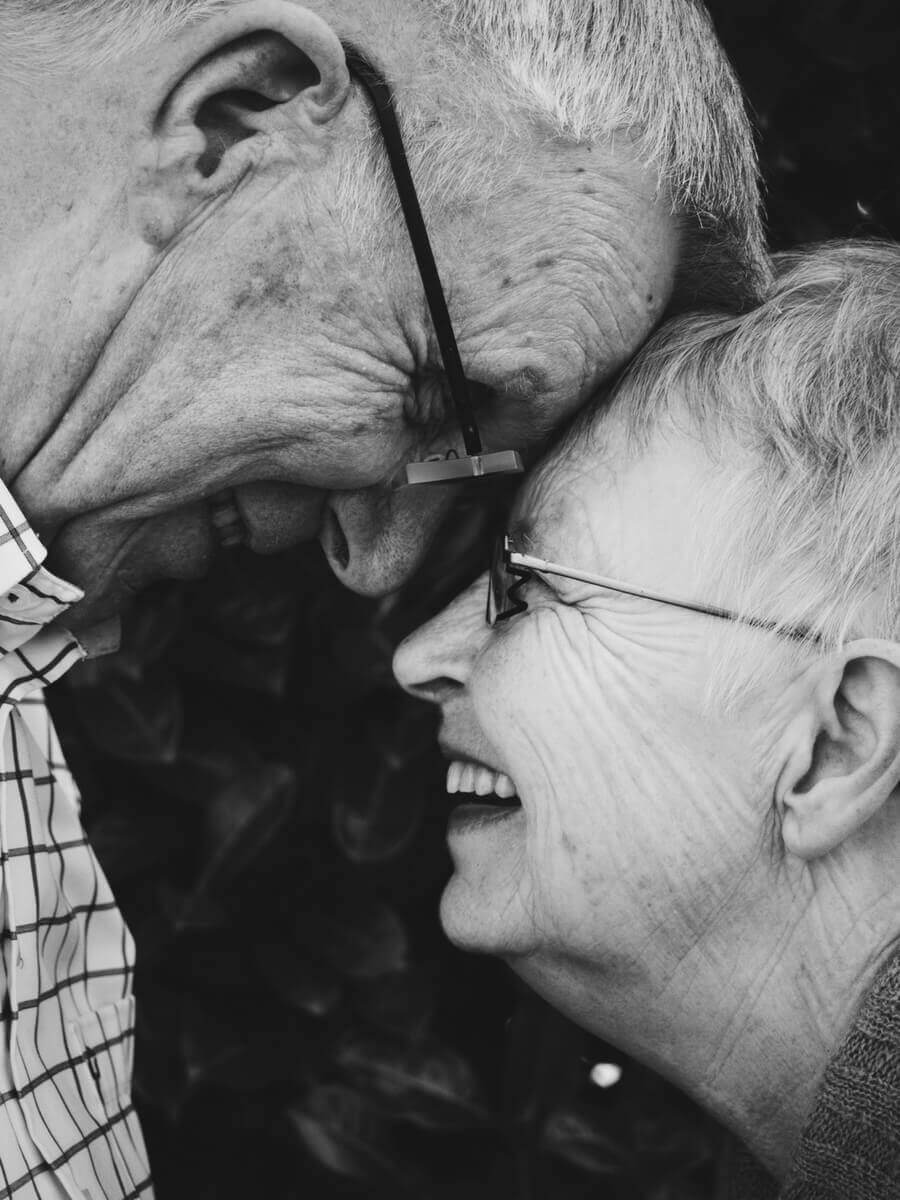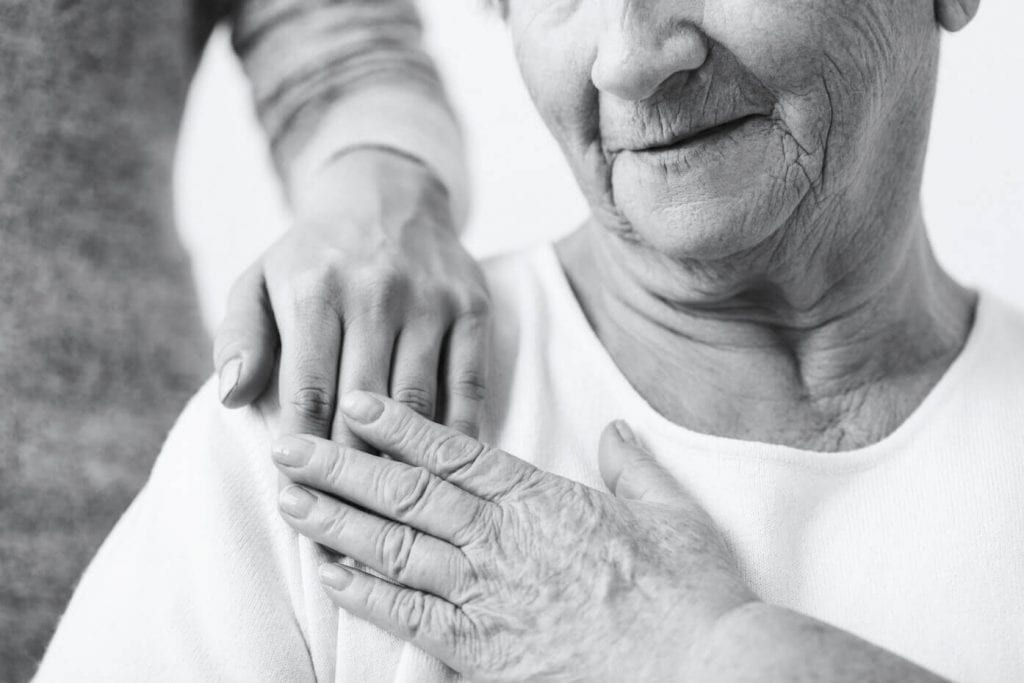
On their wedding day, couples often promise to be there — for better, for worse, in sickness and in health. But when the marriage includes the heartbreak of Alzheimer’s or another form of dementia, it may take more than you thought to keep those vows.
Just the word Alzheimer’s strikes fear in most people. Although receiving a diagnosis of cancer can bring a similar reaction, there’s one big difference. Because as devastating as cancer can be, you won’t forget those you loved and the life you once had.
According to the Alzheimer’s Association, in 2017 there were 5.5 million in the U.S. living with Alzheimer’s or 1 in 10 for those over the age of 65. Before its inevitable end, the patient will eventually be bed-bound, requiring 24-hour care, 7 days a week. Of the top 10 causes of death, it remains the only one that still can’t be prevented, cured or even slowed down.
The stress and anguish of the caregivers who will ultimately be forced to lose their loved one twice seem almost unimaginable.
Living with this degenerative brain disease is often referred to as the long goodbye because of the quality and quantity of life between discovery and death. For those diagnosed when 65 and older, the average survival rate is four to eight years, yet some may live two to three times that long. And 40 percent of their time will be spent in the most severe stage, much of it living in a nursing home, where two-thirds of those who die of dementia will do so.
I can’t think of another illness that seems so cruel and not just to the patient. The stress and anguish of the caregivers who will ultimately be forced to lose their loved one twice seem almost unimaginable. Not only do they watch over someone who most likely no longer knows who they are but they’re trapped in a body that won’t yet let them go.
How do these caregivers face the daily realities that the life they once had is gone? Or acknowledge that it won’t be death that will separate them but this disease? And the irony is not lost that when they need their partner more than ever, they’re left alone instead.
The emotional toll of losing someone you love, a little each day, is steep, leaving most caregivers sad, lonely and often isolated. Counseling and support groups may not be enough. As the despair grows, for some caregivers finding another relationship to share this devastating experience is what saves them.

This isn’t about being unfaithful or un-kept promises. The stories I came across involved lost and hurting souls, vehement that the love for their spouse will never go away. They’ll remain married until the end. And they are very up front and honest to any they meet about their circumstance and what they can offer.
But who is also amazing are the people who reach back. They are not only compassionate but understand that they are not the spouse nor will they be the sole receiver of attention or love. Their role is supporting. Yet they find themselves growing to love the family and usually becoming part of the care team.
While often those closest to the situation encourage these relationships, not everyone is as gracious. Friends, family and even nursing home staff can see it as disloyal or abandoning the loved one, even though the care and visits continue uninterrupted. But most involved in these circumstances believe that unless you’ve been where they are, you really can’t be a fair judge.
Tami Reeves wrote about her experience as being a support partner in her book, “Bleeding Hearts.” She may have been seen by some as the “other” woman but she saw first-hand the love and pain that her eventual husband and his family experienced. Becoming part of his wife’s care team, she also is honest about the judgment and pain she suffered as well.

Barry Petersen, a news correspondent wrote a book, “Jan’s Story” chronicling his experience with his wife Jan who was diagnosed at 55 with early-onset Alzheimer’s. Listening to his past interviews online verifies the heartfelt pain of those caught in the tangles of dementia. The disease starts with denial and a sense that it can be fought, he says. But the hardest day in his life was when Jan went into an assisted living facility. He knew what this day represented. Their lives together as they had known it were over. She would never come home.
Under the strain of caregiving, his mother-in-law was actually the one who suggested that he find someone who could help him through this, which he did. Petersen knew it had nothing to do with leaving his wife or his care for her, but he did meet a widow who not only embraced him and his situation but became a co-caregiver. Jan died in 2013.
Amid the critical judgments by some, most say these relationships make them better caregivers in ways others may not understand.
Finding someone to share the journey makes it bearable.
The relationship helps sustain them down the long road of Alzheimer’s.
The partner helps lessen their depression or from becoming isolated.
They also need a human touch, whether it’s holding someone’s hand or a hug.
This relationship gives them hope for the life that still is ahead.
As baby boomers continue to age and life expectancies increase, the incidence of Alzheimer’s over the age of 65 is projected to double by 2050. Many of us may unfortunately find ourselves in this heartbreaking dilemma.
I don’t know what choice I would make if I were faced with what others describe as having to say goodbye every day. But I know I would want my husband to do what he needed to get through. And I would want him to find a way to choose life, which is how many of these caregivers see it.
Petersen said it was his way to go on. “I was looking in the face of the disease and saying, “You’re not going to win twice. You took one. You won’t get me.”
Alzheimer’s is all take and no give. While the fight continues, we need to support those who are in the battle, struggling to survive. And let’s hope that someday Alzheimer’s won’t get anyone.
©2011-2025 Worthy, Inc. All rights reserved.
Worthy, Inc. operates from 25 West 45th St., 2nd Floor, New York, NY 10036